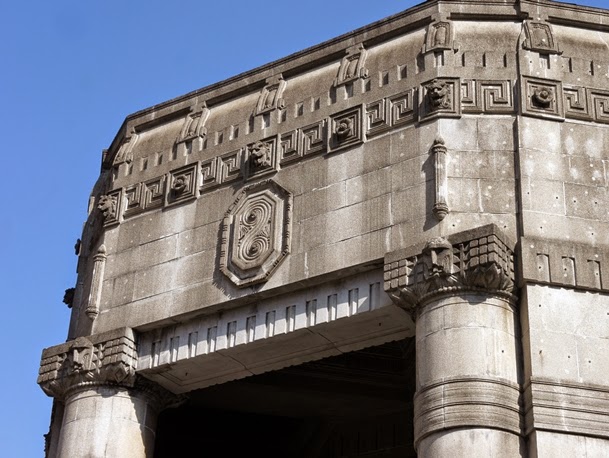Taipei Walled City During Japanese Rule
Route: Chiang Kai-Shek Memorial Hall→East Gate of Taipei Walled City→Taipei Guest House→President's Office→National Taiwan University Hospital→228 Memorial Park→National Taiwan Museum→Land Bank→Taipei Zhongshan Hall
“Taipei Walled City,” a familiar phrase that somehow unfamiliar as well. Something that is no longer existed but can be tracked on the signboards of some old shops, reminding us of its great existence and glory in silence.
Taipei Walled City was firstly built in Qing Dynasty, while Japan took over the reins before construction finished. During Japanese Rule, most of the major facilities were built inside the walls, such as the highest building at the time— the Governor-General's Office (the Presidential Office), which allowed the Governor-General to look down at the whole Taipei city from his office on the central tower. From there, he can also see his residence in the gorgeous Renaissance style that built to praise of his glory.
The Hengyang Road on the other side was once recognized as the “Ginza” district in Taipei, where people can enjoyed shopping in various luxury stores and some Japanese commented that there were no other street in Japan can compare to it. Few years later, along with the adjacent Chongqing South Road to be designated as the financial center, the first ever department store in Taiwan, Kikumoto, opened here and made Hengyang Road reach its peak prosperity.
Because of the urban planning and policies during Japanese Rule, Taipei gradually became one of the modern cities in the world. Nowadays, we can still enjoyed the beauty of many great architectures from the time, such as the head office of the Land Bank of Taiwan, National Taiwan Museum, and the National Taiwan University Hospital which is famous of its Tatsuno-style red and white decoration bond. These buildings were all designed and constructed by Japanese architects. In this tour, our experienced guide will walk you around the center of Taipei and introduce these beautiful old buildings to you.





No comments:
Post a Comment